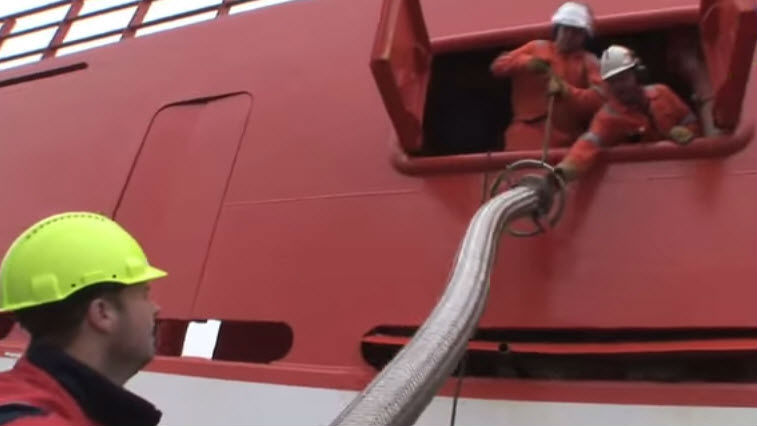IMO Adopts IGF Code

On Friday, the IMO adopted globally binding regulations for ships using LNG as fuel.
The newly updated international code, the IGF Code, covers the safety of ships using gases or other low-flashpoint fuels and is designed to ensure that the safety level of ships using LNG and other more environmentally friendly fuels is enhanced and made more homogeneous.
The regulations will enter into force in 2017 and apply to new ships and new conversions of ships, respectively, except for gas tankers.
The IGF code was adopted at the 95th session of the IMO Maritime Safety Committee (MSC 95). MSC 95 was held in London from 3 to 12 June 2015 under the chairmanship of Deputy Director-General of the Danish Maritime Authority Christian Breinholt and with Captain Segar from Singapore as the Vice Chairman.
The Committee warmly thanked Breinholt for his eminent chairmanship of the Committee in the last four years. Subsequently, the MSC elected Brad Groves (Australia) as its Chairman as well as Juan Carlos Cubisino (Argentina) as its Vice-Chairman for 2016.
Among the issues considered were the following:
Safe mooring operations
The Committee recognized the need to lay down new regulations on safe mooring systems. The purpose of this is, on the one hand, to prevent seafarers' exposure to the considerable dynamic forces with which today's large ships are provided and, on the other hand, to reduce the physical workloads related to these operations. At the same time, the Sub-Committee on Ship Design and Construction (SDC) was tasked with establishing the basis of this.
Goal-based standards
The Committee continued its deliberations on the principles of goal-based regulation and on the use of risk-based methods in connection with the drafting of new IMO regulations and revisions of current regulations. Until now, guidelines for developing goal-based standards have been drawn up, but the work on risk-based methods will continue for another couple of years.
Cyber security
The MSC noted that the industry, led by BIMCO, is about to finalize guidelines on maritime cyber security. Therefore, the Committee decided not to proceed with other initiatives for the time being, though there was great understanding of the importance of this issue.
The Intact Stability Code
The MSC approved an update of the Intact Stability Code with provisions on anchor-handling operations for offshore supply vessels. The Danish industry has made great contributions to the drafting of the new regulations on the basis of the Bourbon Dolphin accident.
Watertight doors
The Committee decided that the provisions of the SOLAS Convention on the construction of watertight doors are to be revised with a view to enhancing the safety of those on board and to providing a possibility of innovative solutions for new ships. The regulations are more than 100 years old and, consequently, there was general agreement that they could be in need of a service check.
Migrants
The MSC debated recent developments in the problem with the many boat people in the Mediterranean and in South-East Asia. The Committee decided to include this issue on the agenda of the next MSC meeting to be held in the spring of 2016.
Summary courtesy of the Danish Maritime Authority.
More detail is available from ABS here.
